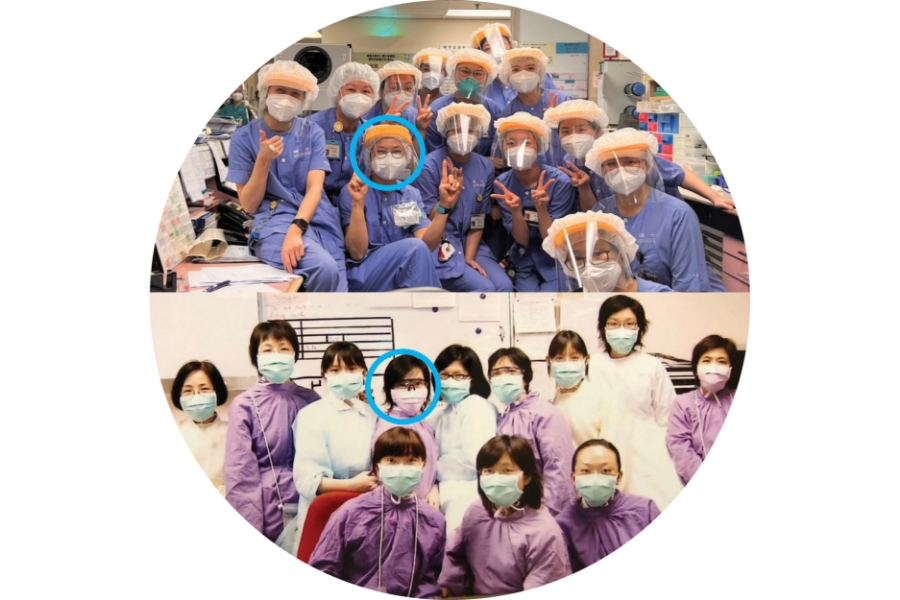Care of patients in their final journey
As well as setting up designated hospitals, the HA has converted about half of the general beds in public hospitals to admit COVID-19 patients earlier, including rehabilitation and acute beds. In early March to April, Pamela Youde Nethersole Eastern Hospital (PYNEH) converted five wards on the 9th floor of its Main Block into COVID-19 wards, including Orthopaedics & Traumatology (O&T) wards and Emergency Medicine Ward (EMW).
Ng Yu-mei, Advanced Practice Nurse of the Department of O&T, had worked in the same department at PYNEH for more than 26 years. She took care of patients with limb injuries and fractures every day, before finding herself caring for COVID-19 patients in the fifth wave of the epidemic. She shares her most striking experience was to take care of many old and bedbound patients and even witness deaths of elderly patients. Because they were infected, relatives were unable to hold their hands to whisper their final farewells at bedside.
“At the end of their lives, family members could only say goodbye from behind windows. It was a heartbreaking scene,” she recalls. “We try our best to arrange compassionate visits and tell patients that their family were with them just behind the glass window. We also spend more time comforting the family members, telling them that the deceased had left peacefully, and that they should have no regrets.”

Ng Yu-mei, Advanced Practice Nurse of the Department of O&T, had worked in the same department at PYNEH for more than 26 years. She took care of patients with limb injuries and fractures every day, before finding herself caring for COVID-19 patients in the fifth wave of the epidemic. She shares her most striking experience was to take care of many old and bedbound patients and even witness deaths of elderly patients. Because they were infected, relatives were unable to hold their hands to whisper their final farewells at bedside.
“At the end of their lives, family members could only say goodbye from behind windows. It was a heartbreaking scene,” she recalls. “We try our best to arrange compassionate visits and tell patients that their family were with them just behind the glass window. We also spend more time comforting the family members, telling them that the deceased had left peacefully, and that they should have no regrets.”
